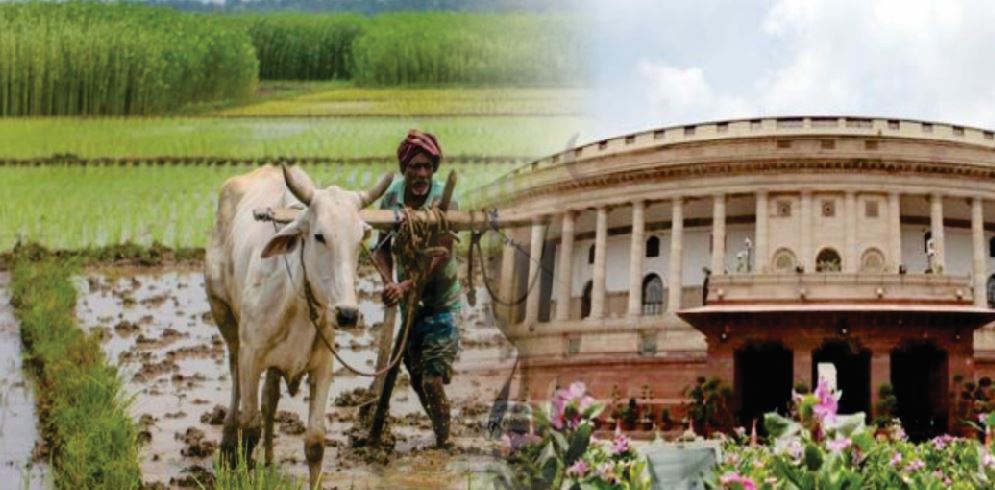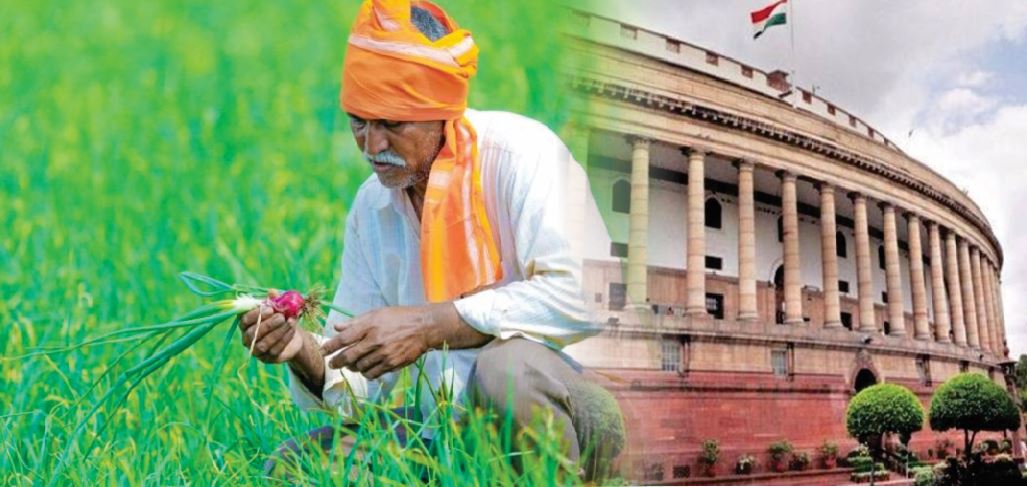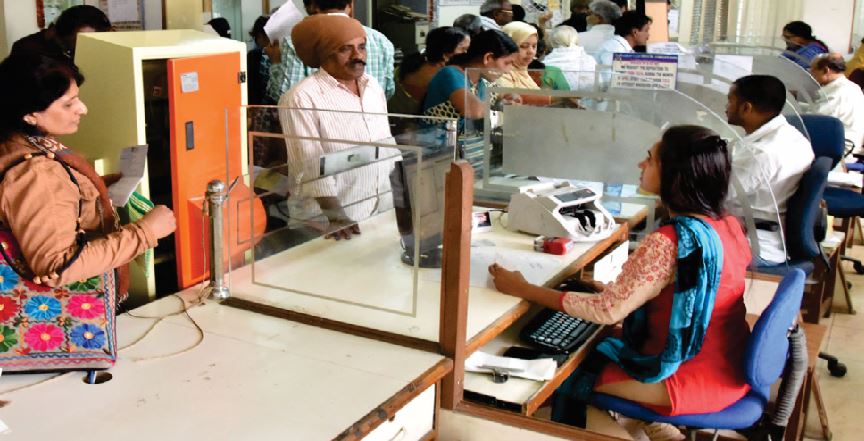
Farmers are Fearful of the New Law
- अक्टूबर 4, 2020
- 0
Farmers are Fearful of the New Law
The three ordinances related to marketing of agricultural produce which were introduced in the Lok Sabha on 16.09 as a bill. The first ordinance allows for sale and purchase outside mandis without disrupting the current structure of Agricultural Produce Marketing Committees (APMCs). The second ordinance provides a framework for contract farming, while the third ordinance provides for the removal of certain items from government control in the Essential Commodities Act.
These ordinances were announced in May as a ‘self-sufficient India’ campaign of the government. Fearing that the new law will reduce the minimum support price (MSP) as well as the Food Corporation of India (FCI) procurement system. As such, deep insecurity is increasing, especially in Punjab and Haryana.
A Niti Aayog member, who has been instrumental in drafting these ordinances, told that farmers in Punjab and Haryana are not understanding these reforms properly. These changes will neither eliminate the MSP nor will it result in corporatization of the country’s agricultural sector, which are the two biggest fears of farmers.
Further there is no mention anywhere in the ordinance that this would impede the existing MSP-based procurement system for certain crops. There is no discussion at any stage of weakening the minimum support price anywhere in the current government. On the contrary, MSP procurement has increased under the rule of this government. He said, ‘Of course, if the farmer wants to make any kind of compromise for good input then he can do it but he will have to do the farming. We have given a provision in the Contract Agriculture Ordinance that there is a ban on the construction of any kind of structure on the farmers’ land.
For millions of farmers the main scale is the price that they get for their crops. The second type of apprehension among farmers in Haryana and Punjab. Once the procurement starts outside the regulated markets or mandis, the Center and its agencies like FCI will gradually stop buying their annual wheat and rice from these states and hence these farmers will have to live on the mercy of traders.
Punjab and Haryana make a major contribution to the annual wheat and rice procurement of the center which is distributed through the Public Distribution System (PDS) across the country. The minimum support price will continue as misleading statements of the central government have increased the apprehensions of farmers in Punjab and Haryana about agricultural ordinances. They believe that unlimited procurement of paddy and wheat will end after the 2020 Punjab elections.
Although the Center insisted that the three ordinances provide an alternative marketing channel to farmers, farmers in Punjab and Haryana are not convinced. However, political parties are encouraging them to raise their voice as these reforms show a revenue deficit.
नए कानून से आशंकित किसान
तीन अध्यादेश जिन्हें 16-09 को विधेयक के रूप में लोकसभा में पेश किया गया। पहला अध्यादेश कृषि उपज विपणन समितियों (एपीएमसी) के वर्तमान ढांचे को बांध पहुंचाए बिना मंडियों के बाहर बेचने-खरीदने की इजाजत देता है। दूसरा अध्यादेश, अनुबंध खेती के लिए ढांचा प्रदान करता है जबकि तीसरे अध्यादेश में आवश्यक वस्तु अधिनियम में कुछ वस्तुओं को सरकारी नियंत्रण से हटाने का प्रावधान है।
इन अध्यादेशों की घोषणा मई में सरकार के ‘आत्मनिर्भर भारत’ अभियान के रूप में की गई थी। लेकिन किसानों को इस बात का डर है कि नया कानून न्यूनतम समर्थन मूल्य (एमएसपी) के साथ ही भारतीय खाद्य निगम (एफसीआई) खरीद की व्यवस्था को भी कम करेगा। ऐसे में विशेष रूप से पंजाब और हरियाणा में गहरी असुरक्षा बढ़ रही है।

नीति आयोग के प्रवक्ता जिनकी इन अध्यादेशों को तैयार करने में अहम भूमिका रही है उन्होंने बताया कि पंजाब और हरियाणा के किसान इन सुधारों को सही तरीके से नहीं समझ रहे हैं। इन बदलावों से न तो एमएसपी खत्म होगा और न ही इससे देश के कृषि क्षेत्र का निगमीकरण होगा जो किसानों के दो सबसे बड़े डर हैं।
उन्होंने आगे बताया अध्यादेश में कहीं भी इस बात का जिक्र नहीं है कि इससे कुछ फसलों के लिए मौजूदा एमएसपी आधारित खरीद प्रणाली में कोई बाधा आएगी। मौजूदा सरकार में कहीं भी न्यूनतक समर्थन मूल्य को कमजोर करने की किसी भी स्तर पर कोई चर्चा नहीं हो रही है। इसके विपरीत, इस सरकार के शासन में एमएसपी खरीद बढ़ी ही है।’ उन्होंने कहा, बेशक, अगर किसान अच्छे इनपुट के लिए किसी भी तरह का समझौता करना चाहता है तो वह ऐसा कर सकता है लेकिन खेती उन्हें ही करनी होगी। हमने अनुबंध कृषि अध्यादेश में प्रावधान दिया है कि किसानों की जमीन पर किसी भी प्रकार के ढांचे के निर्माण पर रोक है।’
लाखों किसानों के लिए मुख्य पैमाना उनकी फसल के लिए मिलने वाली कीमत है। हरियाणा और पंजाब के किसानों में दूसरी तरह की आशंका। एक बार विनियमित बाजारों या मंडियों के बाहर खरीद शुरू होने लगेगी तब केंद्र और उसकी एजेंसियां मसलन एफसीआई धीरे-धीरे इन राज्यों से अपनी वार्षिक गेंहू और चावल की खरीद बंद कर देगी और ऐसे में इन किसानों को व्यापारियों के रहमोकरम पर जीना पड़ेगा।
पंजाब और हरियाणा केंद्र की वार्षिक गेंहू और चावल खरीद में एक बड़ा योगदान देते हैं जिसे देश भर में सार्वजनिक वितरण प्रणाली (पीडीएस) के माध्यम से वितरित किया जाता है। न्यूनतक समर्थन मूल्य जारी रहेगी जैसे केंद्र सरकार के भ्रामक बयान की वजह से कृषि अध्यादेशों को लेकर पंजाब और हरियाणा के किसानों की आशंकाएं बढ़ी हैं। वे मानते हैं कि 2020 के पंजाब चुनाव के बाद धान और गेहूं की असीमित खरीद खत्म हो जाएगी।’
हालांकि केंद्र ने जोर देकर कहा कि तीनों अध्यादेश किसानों को एक वैकल्पिक मार्केटिंग चैनल प्रदान करते हैं लेकिन पंजाब और हरियाणा के किसान आश्वस्त नहीं हैं। हालांकि राजनीति दल उन्हें अपनी आवाज उठाने के लिए प्रोत्साहित कर रहे हैं क्योंकि इन सुधारों में राजस्व घाटा दिख रहा है।
































































